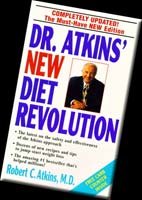Burning Calories
You must burn more calories than you eat if you want to lose body fat. Period.
The basic rule of weight management is that you must burn more calories than you consume each day; each week; and each month if you want to lose weight. It doesn't matter if all the food you eat is healthy, wholesome, or "clean" food.
The total amount of the food you eat - no matter what kind of food that is - must add up to be lower than the number of calories your body efficiently burns each day.
If you want to build more muscle and gain quality weight, then you must strategically eat more food than you burn off each day; each week; and each month.
Unfortunately, however, you can't just stop eating and expect to lose body fat and you can't just start eating like crazy if you want to gain quality weight.
Controlling Your Metabolism
Focus on taking the necessary steps to control your metabolism. The key to effective weight management is regulating your metabolism.
Anyone, no matter what their physical challenges are right now, can do a better job of managing and regulating their metabolisms. You must do the best with the gifts—and the challenges—with which you are presented.
If you want to lose body fat, you just can't stop eating. If you want to gain quality weight in the form of muscle, you can't just pig out on food.
Smaller, more frequent meals throughout the day help manage and regulate your metabolism. You should schedule your meals every 2 to 3 hours apart throughout the entire day. Weight training and cardiovascular training will also help your regulate your metabolism.
Focusing on managing your metabolic rate through strategically-times smaller meals, weight training workouts, and cardiovascular training sessions for a series of days, weeks, and months will help you improve your body over time.
There Is No "Perfect" Diet
 Stop searching for that "perfect" diet. People are oftentimes distracted looking for an easier, less-painful diet that requires less discipline than the eating program they are on.
Stop searching for that "perfect" diet. People are oftentimes distracted looking for an easier, less-painful diet that requires less discipline than the eating program they are on.
If the diet doesn't work as quickly or effectively as they expected, they blame the diet—and not their standards or expectations.
Many diets appeal to different people for different reasons besides their level of effectiveness. The Atkins Diet, for example, may seem great to some people because they love to eat meat.
The Zone Diet may seem ideal to other people because they love salads and vegetables.
Even a strict, bland bodybuilding's diet may appear to be the best option to some people because they like the fact that they aren't required to make decisions for themselves on a continual basis or because they really enjoy the taste of meal replacements.
Keep It Simple
Keep your diet simple. Have you ever known people who always ask themselves "What am I going to eat for dinner tonight?" Some people put a lot of thought and effort just deciding what foods they are going to enjoy during a future meal.
In my opinion, doing so makes the eating process far too complicated. The more complicated you make your nutritional program, the more difficult you'll make it to follow through with.
During the week, I intentionally keep my meals plain and simple. I don't get too fancy or complicated when it comes to eating.
During this time, the main purpose for eating to grow muscle and keep my body fat levels manageable. If I decide to relax at all with my habits, it will be during the weekends.
"The less thinking and extra planning you have to do
when it comes to feeding yourself properly, the better."
Try to look at eating as merely a method to build quality muscle, fuel great workouts, and keep your body lean and looking good—instead of as a source of recreation, pleasure, and a way to connect with your family and friends.
I realize that delicious dining is one of life's great pleasures, but try adjusting your way of thinking to that of a muscle-building, efficient eater as much as possible. Simple meals will help you stay consistent with your eating habits.
Focus Is Imperative
You must give the diet you have chosen your full focus and attention in order to get the best results. Just about any diet, when implemented on a consistent basis, will work for you.
You must, however, have confidence in your diet in order for you to give it your full focus and attention.
People let themselves become confused easily and can't even get started on a nutritional plan without 100 percent certainty that the diet plan they are doing will work for them.
With all the diets available, it will be almost impossible for you to have 100 percent certainty and confidence in the diet you have chosen. Just when you think you are on the right path, you will hear or read about a new "miracle" diet.
Just when you are ready to dig in and get going on a structured eating program, a person you know will tell you about all the amazing results they are getting with their diet - which seems very different than yours.
Heck! Even if your diet is working, you will sometimes doubt if it working well or fast enough.
Instead of focusing on the differences, try to discover how the diets are similar. You need to ask yourself, "What do these diets have in common?"
Take Responsibility
Take 100 percent responsibility for your success and failure. In other words, if you are not getting the results you want, it's you and not necessarily your diet that's letting you down.
It's not your challenging situation, genetic limitations, or time management dilemmas that are preventing you from reaching your goals.
Your inability to do what it takes (or find out what it takes) to overcome your challenging situation, genetic limitations, or time management dilemmas is what must be addressed - and overcome.
People oftentimes blame their individual circumstances or genetic conditions for their lack of progress. If you are truly committed, you will eventually find a way around any of your physical, mental, and/or emotional challenges.
People will also sometimes unfairly compare themselves to other people. "They can eat anything they want and still look good while I eat like a bird and gain weight!"
The route you may have to take may not seem as easy as someone else you know, but there is indeed a way to overcome your challenges.
You must realize that you are determining the quality of the physique you really want with the decisions you make. Everything worth having has some sort of "price tag" on it.
Usually the more desirable something is to have, the higher the price. Maybe you don't want to pay the price necessary to have the physique you thought you really wanted.
If you don't want to pay the price, that's fine. But you must accept the decision that you've made. Don't blame your lack of knowledge—blame your lack of desire.
Don't blame your genetics or personal conditions - blame the fact that you decided not to overcome those challenges at this time.
Reassess Your Standards
If you are not getting the results you want, you'll need to raise your standards. You either need to do a "little more of this" or a "little less of that."
Food selection, food quantities, meal frequency, meal timing, cardiovascular training intensity, cardiovascular training frequency, weight training, and weight training frequency are all factor that are 100 percent in your own control.
Focus on finding the right combination of these factors that work best for you. You must determine what you must do more of and what you must do less of to reach your body improvement goals.
It's your body. No one will ever care about your body more than you. Never rely on anyone else to solve your challenges for you. Take full responsibility for the task of finding what's best for you and your body.
Don't Talk So Much
Don't waste any time talking to people about all of your eating, metabolic, and genetic challenges. Are they really going to challenge your beliefs anyway? Do they really care?
Talking about how much difficulty you have losing body fat (or building muscle) over and over only reinforces your disempowering beliefs about what you can and cannot accomplish.
You may alleviate your short-term pain—but ensure long-term pain.
Reward Yourself
You must recognize and successfully manage the "emotional relationship" between you and your current eating habits.
Schedule to eat certain not-so-healthy, delicious, and fattening meals or "cheat meals" in advance. Schedule those special days when you plan to indulge in less-than-healthy foods or "cheat days" in advance as well.
Use those cheat meals or cheat days as special "rewards" for being disciplined all week long or putting together a series of weeks of good eating habits.
Don't use food as a reward for accomplishments in other areas or your life. You don't want to create or strengthen an emotional link between success and fattening food.
Also, you should try not to use delicious, not-so-healthy food to mask any emotional pain that you might be feeling due to challenges in other areas of your life. In other words, do eat to make yourself feel better.
Exercise Is Not A Substitute
Never try to "make up" for poor eating habits with more exercise. Up to 80 percent of the way you look will be determined by the way you feed your body - not by your training habits!
You might mistakenly believe that you can make up for poor eating habits with a little extra exercise. The "exchange rate" between the eating and exercise is not a fair exchange at all!




